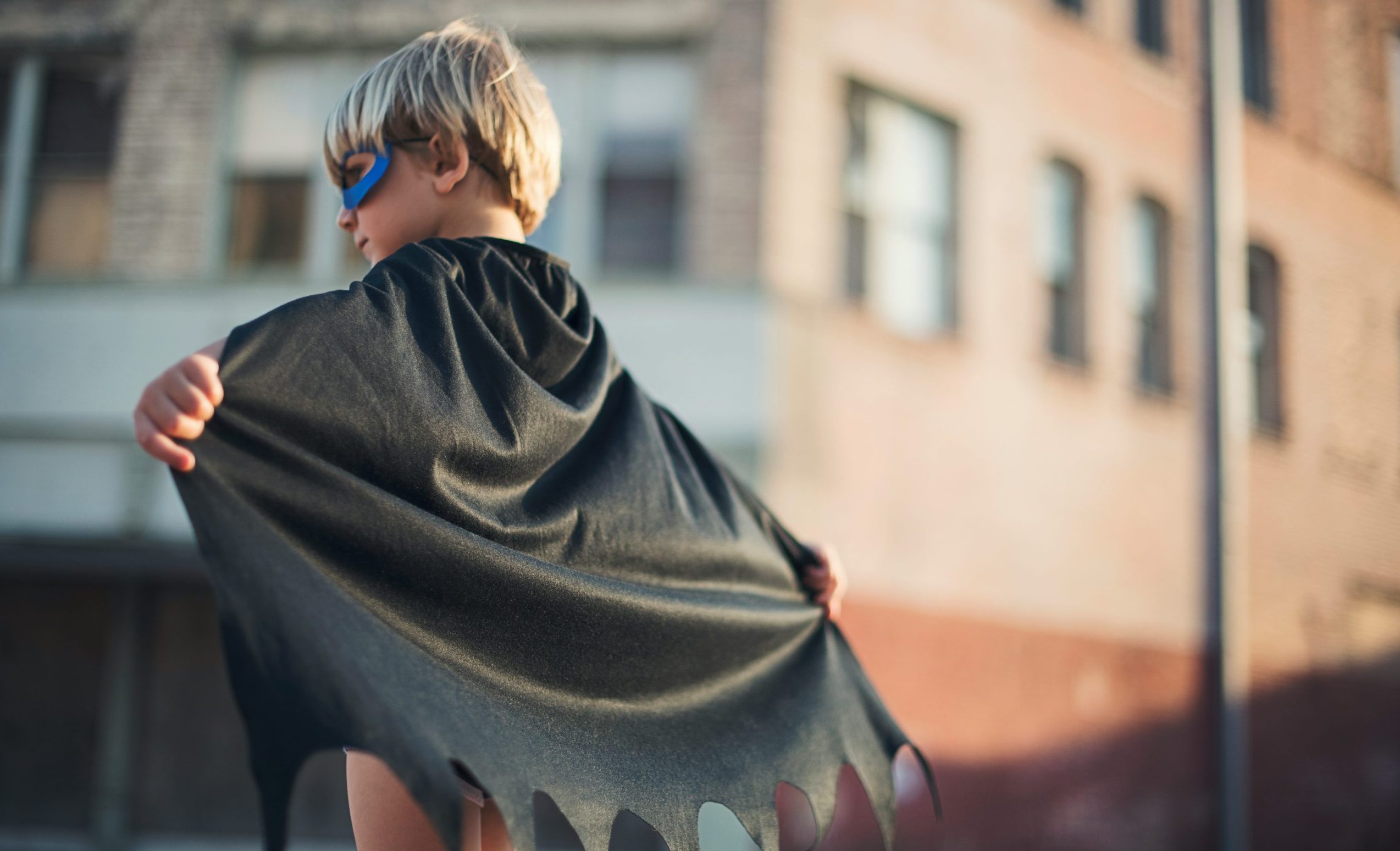Why Flawed Heroes Are Essential to Modern Literature
Today’s guest post is by Joseph Macolino.
Here he comes again, the perfect, flawless hero with all the strength and no doubts of his cause. He’s strong, mighty, righteous, and just. No matter what obstacles he faces, he’ll come out stronger for it.
The only problem is no one can relate to him! When contrasted with the flawed hero that most modern stories employ, he simply can’t measure up. Today, let’s consider what makes a hero and why flawed heroes are essential to modern literature.
The Truth About Heroes
Would you know a hero if you saw one? In the modern world, “hero” is one of many terms that seem to have a muddled definition. Some people simply get the title of “hero” because they’ve chosen a specific profession.
Most who are called heroes by one group are considered great villains by others. This apparent conflict has muddied the waters of what makes a hero. But perhaps the confusion can be resolved by reconsidering what makes a hero.
In dictionary terms, a hero must be courageous, noble, or have some otherwise outstanding qualities. But in the real world with real people, no one is simply a hero. For modern literature to include a hero, we should consider the reality of the human condition and speak truth through art. This means creating a hero that is real.
But what does a real hero look like?
Defining A Hero
Boiling this down to its most simple state, and ignoring any personal bias, a hero does not therefore need to always be good. By societal standards, heroes can have tremendous character flaws. They can be as broken as the rest of us mere mortals, but when adversity finds them, they stand up to the challenge. And this is all well and good, but how do we condense this into a simple definition of a hero?
Perhaps the easiest way is this; a hero is anyone who recognizes evil and takes a stand against it. For our purposes, let’s agree on this definition of a hero. But why does this make flawed heroes so much more enjoyable in modern literature?
I’m in This Story, and I Love It!
Everyone has looked at someone in their lives and thought: “I don’t trust him; he looks phony.” And if you’re the sanctimonious sort claiming you’d never think such things, it’s easy to assume someone you know has voiced this sort of thought, right? The reason people think things like this isn’t some supernatural insight, but rather an innate knowledge that no one is perfect. So, when we see someone who is apparently flawless, living a perfect life, we reject that person.
Now consider the opposite of that. The easiest way to understand how flawed heroes are essential to modern literature is to think about this simple truth: people like similar people. In this way, we are attracted to people’s bad qualities as much as their good ones.
When we read about a hero who has no cares in the world beyond “defeating the big bad” we can’t relate. Instead, when we see a hero who struggles with the same shortcomings we do, we feel drawn to them.
These heroes are real people. They didn’t choose to pursue herodom and it usually doesn’t come easy. But just as you still show up to work when your child kept you up all night, or your car got a flat tire, or whatever obstacle you are dealing with, these heroes put aside their obstacles and get the job done. That is a hero worth reading about.
Shattering The Perfect World Past
Contrasting this with those paragons of virtue from the past, it’s easy to see how these flawed heroes create more compelling stories. But just in case, let’s paint a clear picture by imagining a perfect hero and comparing against a more modern, flawed hero.
Let’s imagine a centaur for this. If for no other reason that the fact that centaurs are awesome, and I feature them in my writing. Consider that perfect hero of legend. He’d be a noble centaur, one of privileged birth and great power. With both physical and magical prowess, he meets all challenges head on and crushes his enemies. He had no doubts about his cause and seeks only justice and goodness in the world.
I don’t know about you, but this character not only sounds boring, but more pointedly, completely unrelatable, especially when you consider the vast anatomical differences between him and us as humans.
But then we consider a character like Irontail in my Evorath series. Yes, he’s a centaur warrior. By human standards, he’s unbelievably strong and resilient. But he’s no one special in his community. In fact, far from it (which most of us can relate to right off the bat).
More than this, he’s uncertain about his place in life. He questions the dogma of his elders, wondering whether there is a better way to live. This type of hero messes up, makes wrong choices, and sometimes walks away defeated.
But you know what else?
This type of hero is one that people relate to. It’s the type of character that people read about and gravitate towards because if he can be heroic, then perhaps they can too.
The World Needs Heroes
Ultimately, modern literature needs flawed heroes because the world needs more heroes, period. We don’t need more idols, people putting on costumes and being worshiped as heroes simply for being. Instead, we need true heroes. That is, flawed people like you and me who see evil in the world and call it out. By writing stories with these similarly flawed heroes, we encourage others to recognize that they too can play a part.
And remember, a hero doesn’t have to fight off an army, defeat a monster, or even feed a village. Sometimes, a hero just needs to stand their ground and call out the villain. In a noisy, violent world, those types of heroes make more of a difference than you might realize.
Featured Photo by TK on Unsplash

Joseph Macolino has a passion for nature, philosophy, and all things fantasy. An unwavering Christian and self-declared anarchist, he dreams of a future human society where people can truly cooperate and voluntarily exchange ideas, goods, and services. He believes each person’s unique gifts can help contribute to stronger communities and hopes his work encourages others to embrace their gifts. Find out more about him at his website.






Great points. My “hero” is a nice guy racist alcoholic -damaged by the Vietnam war.
One added point to Macolino’s piece about flawed heroes. His article captured a good segment of what is needed for audience identification.
However, I thought more was needed to tie the conflict into the flaws that frame the P. Of course the P shows some flaw as the conflict develops. But a dramatic quality hits if we have P emotionally tied to one side of the conflict. Then P finds out everything depends on helping the other side.
This key aspect achieves two goals. One, it allows for an inner turmoil within P. Makes P susceptible to making flaws, which then become realized as common flaws the audience shares. And two, it focuses on the most dramatic nature of whatever conflict is present. This moves the conflict forward.
What do you think?
Absolutely spot on! I help a lot of people with their memoirs, where they are in fact the hero of their stories. It can be challenging for them to want to share their flaws. However, that is the only way their books will resonate with their readers. They need to be a flawed hero, who conquers whatever they are battling in the end. Perfect heroes are a bit boring!
That’s the truth. No one wants to read about perfect people (unless their perfection causes their downfall)!
The heroine of my science fiction stories is a pop singer, well-known yet insecure and cynical about her singing. She says her maudlin ballads have made her wealthy, but she never has the nerve to perform the songs that are most meaningful to her. One strand of the story is about her slowly regaining the passion for her singing. This affliction is quite similar to what writers go through, as I know all too well.
My antagonists are not evil–they are government functionaries, insisting on getting what the government wants regardless of the law or the desires of others.